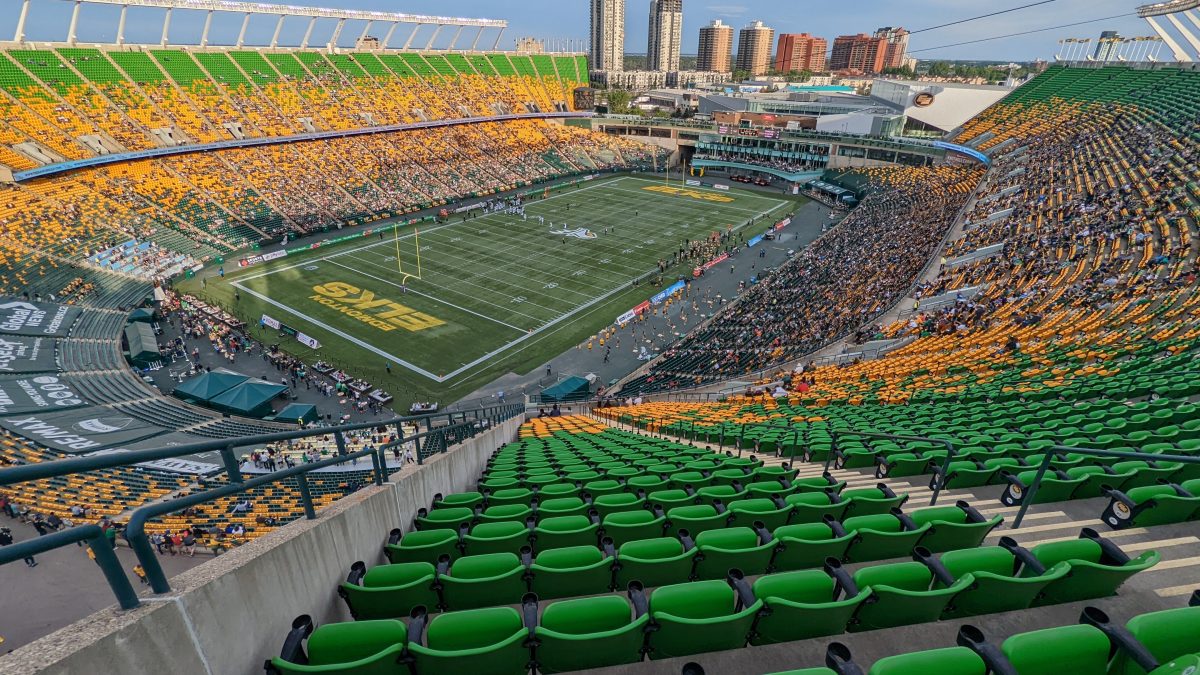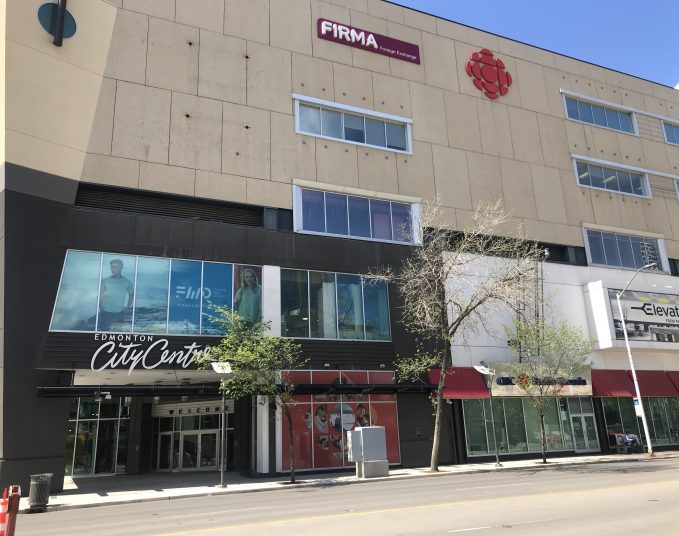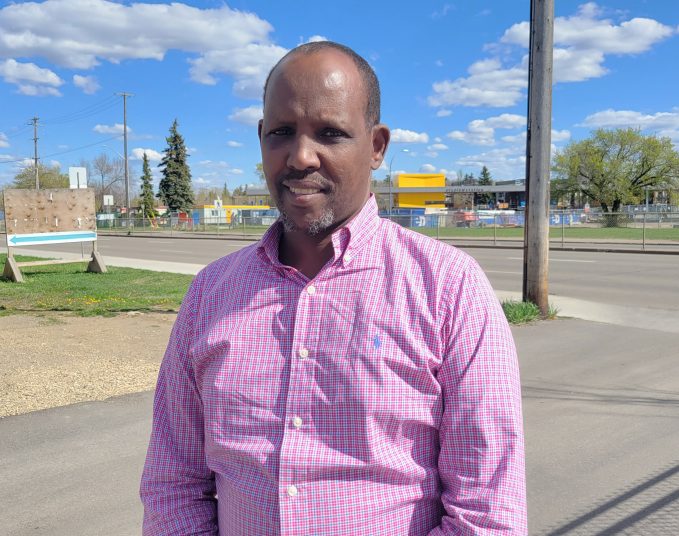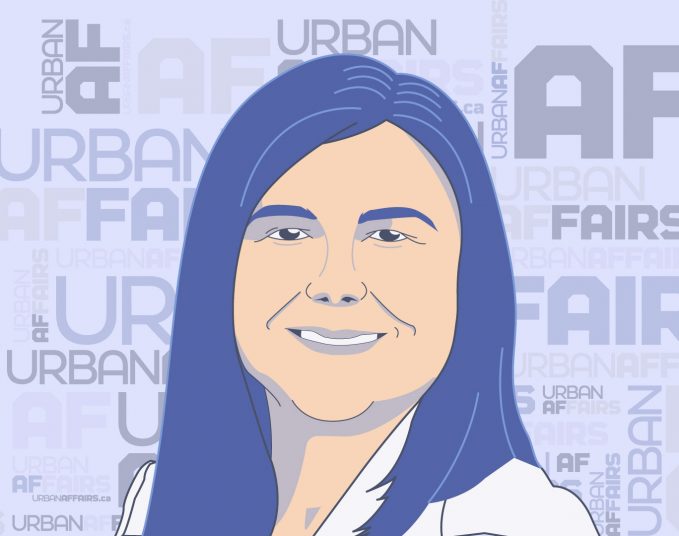A thin crowd takes in the Edmonton Elks home opener at Commonwealth Stadium on a warm June evening. An announced attendance of 23,131 – a little more than a third of capacity – dot the green and gold seats. Even that number is swollen by the Saskatchewan fans out to cheer on their Roughriders.
The Elks haven’t won at home in 980 days. COVID’s cancellation of the 2020 season has a lot to do with that statistic, but the team hasn’t helped: The Elks lost their last home game of 2019, went winless in seven at Commonwealth last year, and have lost their first this year. Their lacklustre performance on this night suggests they’re not about to break that streak anytime soon.
But it’s not just the on-field product that is suffering. The great concrete monolith that is Commonwealth Stadium is showing its 44 years. The brutalist architecture and soaring buttresses encase an open-air concourse as uninviting as any in the country. The washrooms and concession booths seem to have not been upgraded since the stadium opened, in 1978, for the Commonwealth Games. It’s comfortable in the concourse on opening night, but when the wind howls through in the fall and winter, it’s colder and more miserable than out in the seats.
The stadium is also too big for most of the events it hosts – or might host. Its 56,300 seats make it the biggest stadium in Canada, bigger than anything in Toronto, Vancouver or Montreal. It works for some things, like a tour by fan-favourite Garth Brooks, and Pope Francis will no doubt draw a big crowd when he says mass there on July 26. But short of a bolt of divine intervention, the Elks will only sell it out every decade or two. Other possible tenants that could draw a regular crowd, like the soccer club FC Edmonton, have kicked the stadium’s metaphorical tires and found them wanting. On this night, with 23,000 fans in it, the stadium is empty and unenergetic, killing the kind of atmosphere for which people go to games.
And now, the FIFA decision: It’s been two days since world-soccer’s governing body announced that the stadium would not host any games during the 2026 World Cup, despite having performed well as a host location for the FIFA Women’s World Cup in 2015 and the two men’s World Cup qualifying games this past fall. Instead, Vancouver and Toronto will host a currently unspecified amount of games, with the remainder in the U.S. and Mexico.
Around the city, people are engaged in the post mortem, wondering what combination of FIFA demands, provincial government requirements, City of Edmonton failures and stadium shortcomings led to the decision. On the evening of the FIFA announcement, the man tasked with selling the Elks – president and CEO Victor Cui – tweeted a cryptic message hinting at the problems: “We look forward to working with our partners at the City of Edmonton to ensure Commonwealth Stadium continues to evolve and is capable of hosting premier events,” he wrote diplomatically.
There are competing accounts about just what renovations FIFA demanded and the City of Edmonton has not shared the details of its business plan, but the bill would have been in the hundreds of millions. In March, the City of Toronto estimated that costs in that city will be about $290 million. In Vancouver, early estimates are $240-$260 million. Not all of that will come from taxpayers in those two cities, but it will all come from taxpayers. Considering the inflationary pressure around construction costs, those numbers have surely already ballooned, and judging from past experiences of hosting large events, they will go even higher.
There would have been other, non-monetary demands, too. Montreal dropped out of the running to host games when the Quebec government said it would not fund the event, citing concern over cost overruns and the burden on taxpayers. But La Presse reported that in that city, FIFA demanded an “event blackout” that might have forced the Montreal Jazz Festival and the Grand Prix of Montreal to move dates or be cancelled.
But when it comes to public dollars and Edmonton’s primary stadium, is meeting FIFA demands really in the city’s best interest? Commonwealth in its current state is not the answer, but what is? Should the city be looking at the examples of the two relatively new stadiums that have popped up in Western Canada? Both Regina’s Mosaic Stadium and Winnipeg’s IG Field look great and give fans a modern experience. Each has a seating capacity of around 33,000. Bottom line: Should Edmonton invest in Commonwealth, or should we blow it up?
Part 2 Edmonton Elks’ President and CEO Victor Cui and City Councillor Tim Cartmell have their say.
Savvy AF. Blunt AF. Edmonton AF.




